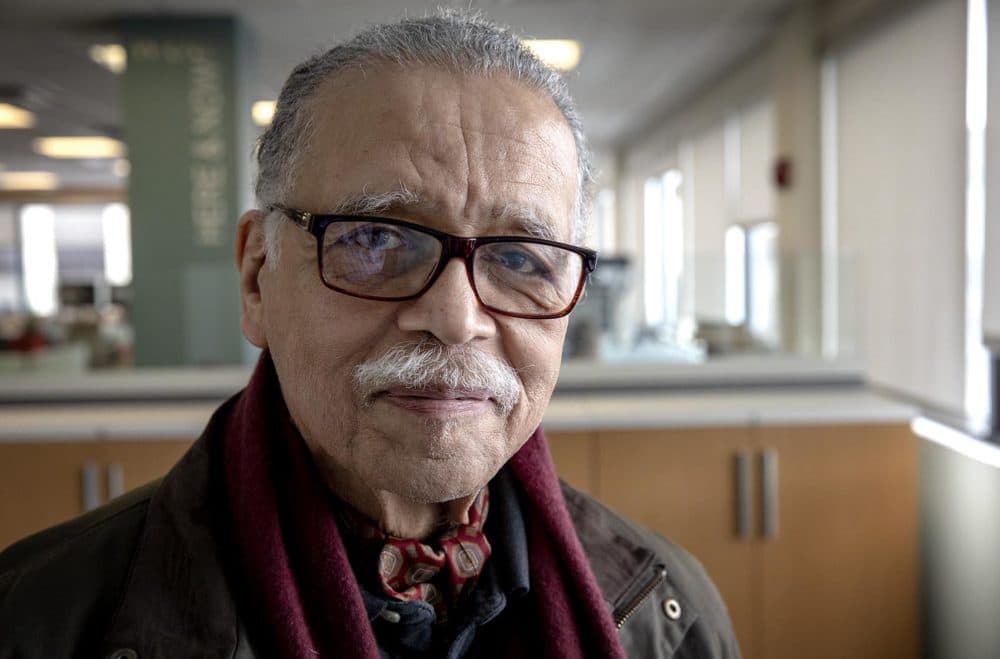Advertisement
Boston's Black History As Seen Through The Bay State Banner
Resume
For more than 50 years, the Bay State Banner has provided an important voice for Boston's black community. Now, a new book goes behind the headlines to take a look at some of black Boston's biggest successes as chronicled over the years by the Banner.
They include the foundation of One United, the country's largest black-owned bank, and the construction of One Lincoln, the largest skyscraper in America developed by minority investors. Not to mention big advances in education and political power.
Melvin Miller, editor and publisher of the Bay State Banner and editor of "Boston's Banner Years: 1965-2015 - A Saga of Black Success," joined Radio Boston host Anthony Brooks.
Interview Highlights
On why he's chronicling 'black success'
"When I started thinking about how the media tends to focus on the problems blacks confront with racism — that's an important thing for them to do — but there's another aspect that is often ignored. Despite the obstruction of the bigots, blacks get around it and accomplish an awful lot, and nobody has really been putting together the record of what has been able to be done. So, being a Roxbury man, I had a good idea of who was doing what ... When I started putting together the accomplishments of some of my neighbors, it was astounding, so I said, we have to make a record of that."
On why he started the Bay State Banner started in 1965
"What inspired the establishment of the Banner was that the Civil Rights Act had passed. It was clear to me that now there was a law that pushed most of the discrimination that we had to face beyond the pale of protection. There was an end to discrimination in employment, education and places of public accommodation. We thought that building on that basis, we should be able to do a lot more in developing an economic base to enable the black community to move forward. That was a very, very tough challenge. I think we haven't really done that part."
On why it's important for the media to show black success stories
"Anybody who stayed any time in Boston knows that we're a city of winners ... so to be cast in the media as losers, which is what happened to blacks — and unfortunately, because of the empathy blacks feels for their brothers who have been damaged because of racism, we focus so much on that that we have almost induced the media to record us as victims, as people who are incapable of moving forward. So what we have to do is, we have to really show the other side, too. Despite these awful conditions that people of color have to confront, we were able to do this — we knew how to get around those linebackers, we knew how to get past those cornerbacks and catch the ball. That's what this book is about."
On whether he remains optimistic about the future
"I'm optimistic about the future of Boston, period. And this book is not just about black Boston, it's to give everybody an idea that, 'hey, we've got a winning team that can carry us across the goal line.' Let's wake up and do the things that are going to make it happen. Boston is the place that can set the standard for the rest of the country."
This article was originally published on February 15, 2019.
This segment aired on February 15, 2019.

